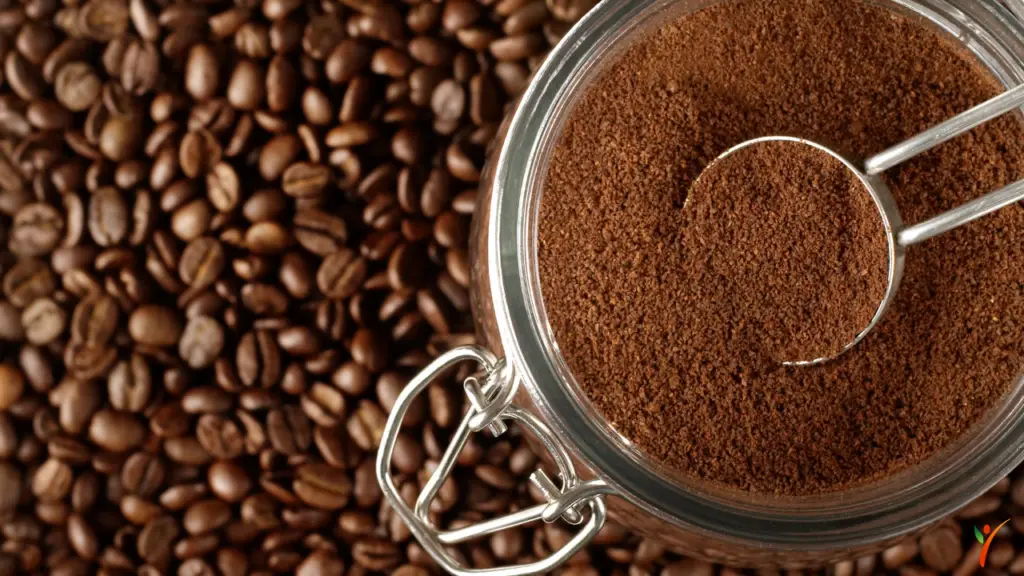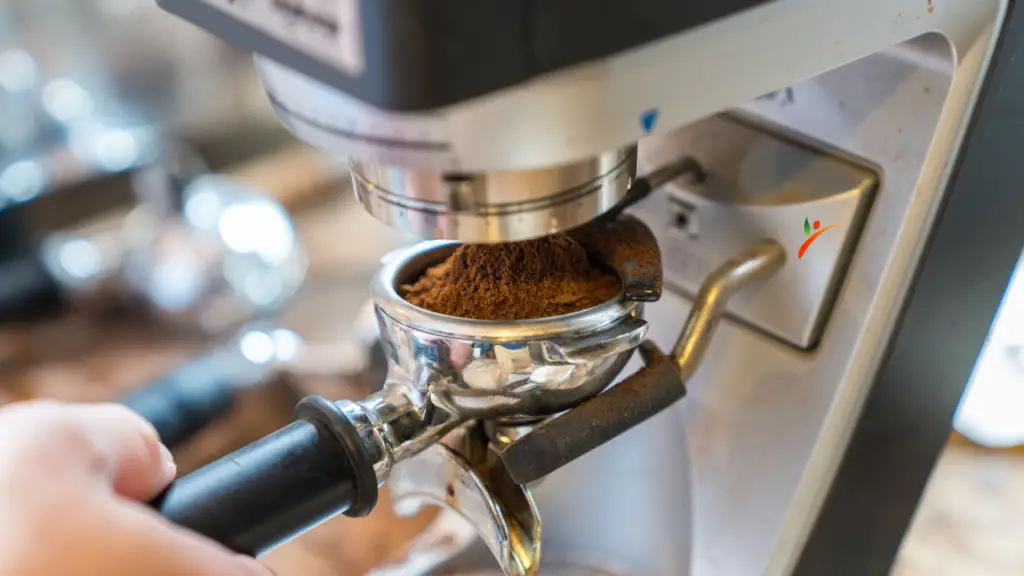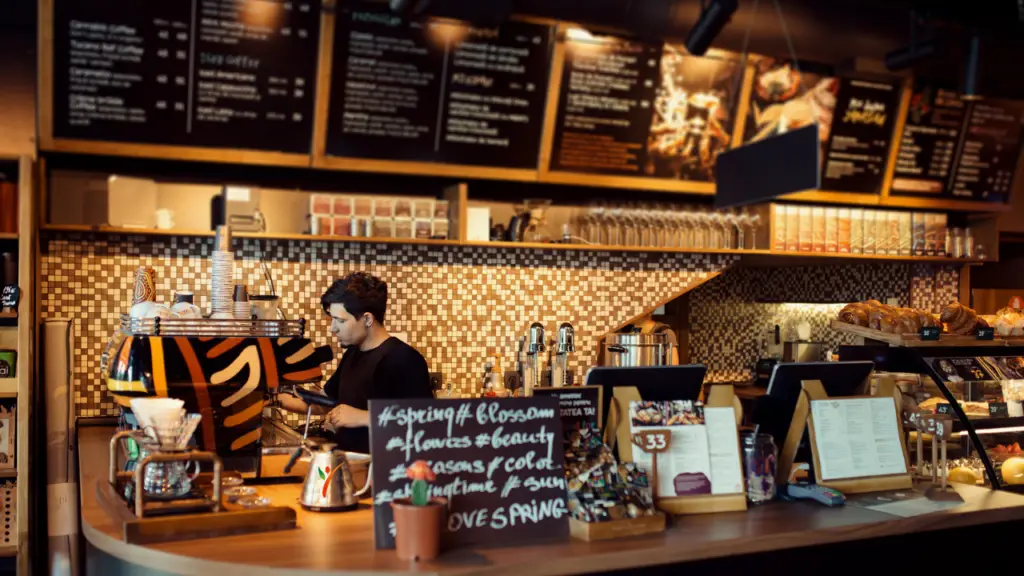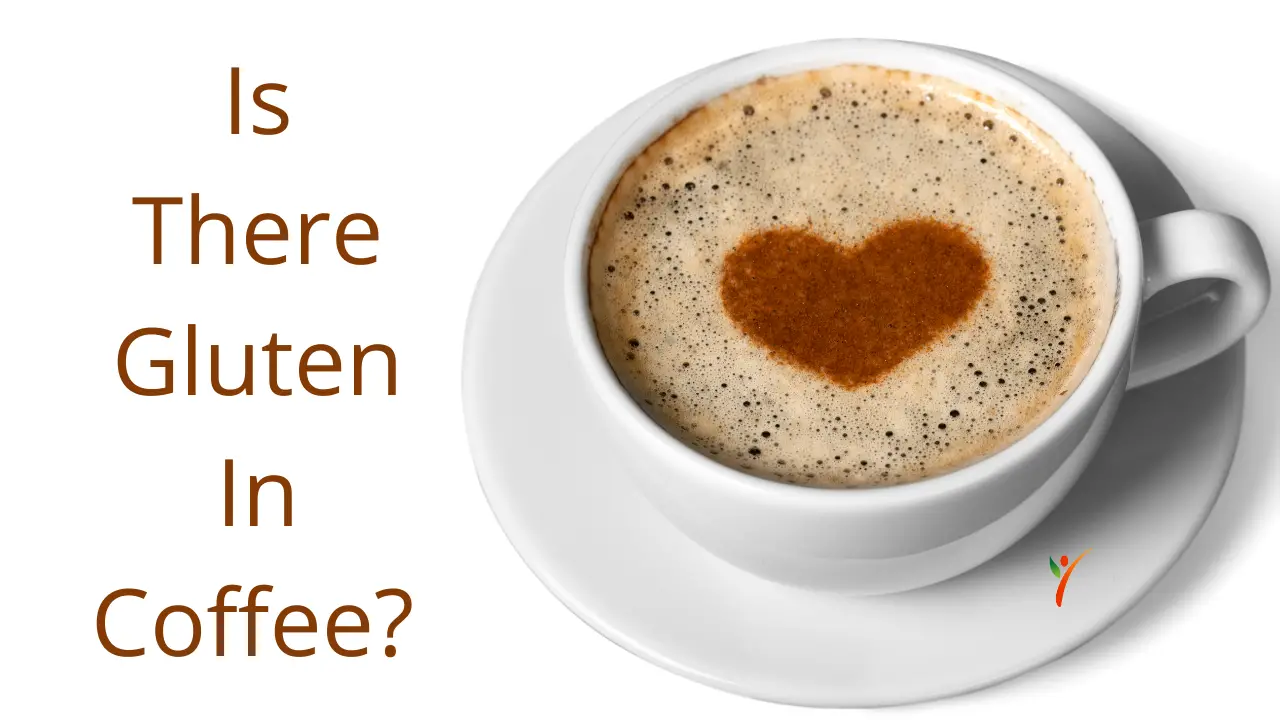Imagine this, you had to work till late at night, and you need that extra boost of adrenaline to get ready and step out of the house the next morning. Sound familiar? Coffee can do wonders when it comes to giving your body the ‘boost' it needs to get out of bed.
Being an adrenaline booster, it's no wonder that coffee is one of the most common American breakfast options. But, on a gluten-free diet, one may ask whether they can even have coffee on a gluten-free diet? If you wonder whether you'll have to bid farewell to coffee when switching to the gluten-free lifestyle? This guide will have the answers to all your gluten-related coffee questions.
Ground Coffee VS Whole Beans

Whether you're a coffee connoisseur or just an occasional sipper, this is a necessary choice you'll have to make. Since both quality and convenience are at stake, you have to ask the question, “Which should I choose?”. And before we go into the depths, we should first know what these terms imply. Moving on, we'll also consider the characteristic differences between the two.
When you are shopping at your local supermarket for coffee, there are two options from which you've to choose initially, and that is, either pre-ground coffee or whole beans. As the names suggest, pre-ground consists of beans that manufacturers ground before sending them for the supermarket shelf.
Meanwhile, whole beans exempt the step of grinding during processing. In this case, the consumer will ultimately have to grind the beans themselves when they're ready to use them. Thus, manufacturers pack and market ground coffee after going through grinding. Alternatively, whole beans are ideal for those who enjoy this process.

Freshness
Fresh coffee creates a bloom, a characteristic effect produced by the coffee when hot water touches it, and a foam develops. The foam is carbon dioxide bubbles interacting with the coffee's fat particles. Research proves that ground coffee loses its freshness at a quicker rate as compared to whole beans.
During the roasting of coffee beans, carbon dioxide forms. A lot of this carbon dioxide gas is released, and hence, wasted during the process of cooling and grinding. About 80% of the carbon dioxide is liberated just within a minute of grinding. The tiny ground particles possess more surface area than whole beans, and thus, are more exposed to air.
Since you'll have to grind whole beans just before making the cup of coffee, they tend to retain their freshness and form that foamy bloom. Therefore, coffee made after grinding whole beans is fresher than ground coffee.
So, if you can't finish your ground coffee within a week or two of opening the airtight container, you'll lose the optimal freshness in the consecutive brews. Even if you manage to drain the entire bag within this time frame, ground coffee is still miles behind the coffee you can make by grinding whole beans when it comes to freshness.

Taste and Smell
Ground coffee can never give you the taste you'll get from making coffee by grinding whole beans. Certain oils present in coffee beans are very prone to contamination. When you buy ground coffee, those oils get exposed to air and moisture, which alters their consistency and strength, giving the coffee an unpalatable taste.
When moisture comes into contact with these delicate, the oils dilute. Unarguably, brewing coffee by grinding the whole beans yourself will have a better taste than ground coffee.
The more time you let your ground coffee sit on your shelf after opening it, the blander your coffee will taste. It goes to the point that near the end of its shelf life, the ground coffee will virtually lose all of its taste.
These oils are responsible for giving coffee its pleasing aroma along with other aromatic compounds. Upon grinding and consequent exposure to the atmosphere, these aromatic compounds become increasingly susceptible to oxidation. The compounds lose their characteristic fragrance when oxidized.
The result will be coffee that tastes bad and smells worse. Within a quarter of an hour after being ground, the aromatic compounds lose about 15% of the innate smell they possess. Thus, if you wish to have coffee that tastes quite pleasant and is flavorful, opt for whole beans. You'll have to do some work, but you'll also reap the benefits.

Restriction to Grind Size
If you ask an expert, the best way to extract the proper taste from a ground particle is to match the grind size and calibrate it with the method of brewing you desire. With whole beans, you'll have the freedom to choose the brewing method of your liking and then grind the beans accordingly. It'll have you restricted to only a particular brewing method with ground coffee.
Otherwise, you won't be able to extract the coffee as efficiently. So using whole beans only broadens the range of brewing methods and machines. It is also more efficient for bringing out the taste and coffee from the ground particles.
Consistent grind size is also responsible for the consistency of the coffee's flavor throughout. Otherwise, the coffee will be a bit strong in one sip and will taste lighter in the next. To avoid this, grind whole beans yourself and then use the appropriate brewing method for that grind size.

Restriction to Variety
If you buy ground coffee, you can only make that specific flavor with a single brew. Ground coffee gives little room for tweaking and remixing various flavors and varieties. Imagine; you're not in the mood for something robust and want to go for a lighter taste but with a touch of a different flavor or taste or even smell.
You can mix various types by adding a slight pinch of another or even grind two different kinds of beans in equal proportions. This technique is extra beneficial if you're a connoisseur and know your tastes and proportions or even if you love to explore new and different ideas.

Convenience and Affordability
Are you running late for the office on a Monday morning? Already can't find your matching tie and socks? Knowing you'll be extra late because of the traffic? Imagine if you've to sit and grind your beans only to make your cup of Joe. You'll get your caffeine, no doubt, but you might lose your job.
Grinding whole beans to make your coffee can have its advantages. However, in the modern-day hustle and bustle, you can't live life without shortcuts. And ground coffee is one of the shortcuts you need for a quick cup in the morning.
Moreover, whole beans are more expensive, and the buying process does not end here. You've to purchase various grinders and different machines so that you can reap the benefits of using whole beans to make coffee, which not everyone can afford.
So it all boils down to the occasion and the type of coffee person you are. If you want delicacies and exquisite tastes, whole beans are your thing. If you're in it solely for the caffeine, go for ground coffee.
One can say that whole beans are better than ground coffee in absoluteness. You might choose ground coffee for one occasion but would go for whole beans on another, depending on all of the above factors.
Why Should You Drink Coffee?

It's a rule of nature that excessive use of anything can almost always prove harmful and have a detrimental effect. The same goes for coffee as well. But within a range, coffee has quite a lot of health benefits.
- Energy Levels and Smartness
The caffeine in coffee is directly responsible for providing the characteristic energy boost and higher concentration levels. Caffeine is a stimulant that tweaks a bit with the brain and forces it to stop producing an inhibitory substance called adenosine. In turn, this inhibition activates several excitatory substances such as dopamine and norepinephrine.
Therefore, according to studies, different parts of the brain start working more efficiently after coffee, such as memory, reaction time, vigilance, mood, energy levels, and general brain function.
- Possible Protection from Neurodegenerative Diseases
It is known that Alzheimer's disease is the leading cause of dementia, which is a neurodegenerative disease that is characterized by memory loss. While there are no complete treatments for the disease yet, those at risk can prevent it in the first place.
Good eating habits and exercise are suspected to reduce the onset's chances. Some studies claim that coffee is indeed responsible for lowering the possibility of development. Research proves that in about 65% of the coffee drinkers, there was a lower risk of developing such neurodegenerative diseases.
- Beneficial Nutrients
Various nutrients are vital and beneficial for a healthy life. Some of these are even present in coffee beans. These nutrients make their way into your cup of coffee and include significant amounts of:
- Riboflavin (about 11%vof the Reference Daily Intake)
- Magnesium and vitamin B3 (about 2% of the Reference Daily Intake)
- Potassium and manganese (about 3% of the Reference Daily Intake)
- Vitamin B5 (about 6% of the Reference Daily Intake)
Does Coffee Contain Gluten?

The answer to this isn't quite simple, but if you wish to go for a gluten-free diet, you won't have to omit coffee. Naturally, coffee is gluten-free but can be contaminated during any stage.
Natural coffee and gluten:
If you're a gluten-sensitive person and end up drinking coffee that's contaminated, this can wreak havoc. Coffee can cause various gastrointestinal complications and induce symptoms such as diarrhea, cramping, and abdominal pain, even in people with “normal” digestive tract that isn't sensitive.
So, these symptoms will be more pronounced and intense in celiac patients. It is best to be extra careful when it comes to your cup of morning coffee. You needn't necessarily leave it, but being extra vigilant should keep any issues at bay.
Pumpkin Spice Latte:
There seems to be a bit of a misunderstanding on this American sensation. According to some, you should avoid it at all costs. But upon doing some research, the only Pumpkin Spice Latte that you'll have to avoid is the one at McDonald's. Other than that, every other major food chain has claimed that their Pumpkin Spice Latte does not contain any source of gluten.
The McDonald's one contains corn, so that for sure isn't gluten-free. An employer at Starbucks claimed that the only product in their entire menu that contains gluten is their Mocha Cookie Crumble Frappuccino. The Pumpkin Spice Latte at Starbucks does not include any gluten sources either.
However, these chains cannot vouch for the assurance of no cross-contamination in their coffee. The same goes for Dunkin' Donuts; the only question mark is cross-contamination. And solely for this reason, these chains do not claim their products to be gluten-free. The pumpkin spice latte does not contain any ingredient that is a gluten source.
Ground coffee and cross-contamination:
If you already choose whole beans, you don't need to worry about this. But since ground coffee goes through extra processing, it poses a greater risk of being cross-contaminated. The risk of cross-contamination is more if manufacturers are using the same machinery to process gluten-containing products for ground coffee.
There's absolutely no way of knowing which batch of ground coffee gets contaminated during processing. For this reason, experts recommend going for whole beans instead of ground coffee.
Flavored coffee and gluten:
Most flavors are a blend of natural flavors that are gluten-free. But many flavorings have an alcoholic origin or base, which are sometimes indirect derivatives of gluten grains. After distillation, the alcohol grains are cleansed clean from their gluten content.
However, recent studies have shown that this isn't true, and even distilled grains contain gluten in amounts, although very minute. But it takes only a very minute amount for some people suffering from extreme levels of gluten intolerance. Gluten concentration is still less than 20ppm, giving them a gluten-free label. But even this amount has been found to trigger the characteristic symptoms of gluten sensitivity in some patients.
If everything is going fine when using flavored coffee, you don't have to worry about anything. However, do keep an eye out while trying a new flavor. This precaution goes out, especially if you have a history of high sensitivity for distilled alcoholic “gluten-free” products.
Gluten-Free Coffee Shops

Firstly, the major coffee chains throughout the US are not gluten-free. For this reason, you will have to explore your area to look for exclusive city cafes that are gluten-free. If you're living in a well-populated city such as New York, you'll find tons of options.
Alternatively, what if your area doesn't have gluten-free cafes and you want a good cup of coffee? While none of these claim to be completely gluten-free and offer gluten-containing products, you can still try them out. Look for the GF menu available at these chains, or ask the staff what gluten-free coffees you can order.
As a general overview, here are a few coffee options from well-known brands that don't use gluten sources as ingredients. The risk of cross-contamination, especially with famous coffee chains, is always possible.
Starbucks-
With Starbucks, your best option is to go for plain and unflavored coffee drinks. If you're new to this, try Mocha, Americano, or Espresso for simple coffees on your next visit. Unflavored coffee drinks in Starbucks with no gluten-containing ingredients include Latte and Cappucino.
Avoid ordering the Caramel or Maple Macchiato since they contain gluten. Additionally, exclude any other syrups in your coffee because they could be a hidden source of gluten.
Dunkin' Donuts-
Again, while Dunkin' Donuts offers a variety of beverages, both hot and cold, you can't have every single one. Dunkin' Donuts states that many of their coffees, even flavored ones, are safe on a gluten-free diet. Although, for people with celiac or extreme gluten sensitivity, you'd still want to avoid the flavored types.
The safest option is to go for straight coffees. But, since they also sell gluten-containing donuts in their shops, the risk of airborne gluten is significantly higher. Therefore, go for their GF menu, but avoid the risk if you have intense sensitivity to gluten.
Tim Horton's-
This Canadian coffee chain has also made its way and its name to the US, with an estimated 650+ branches. Tim Horton's does not recommend its menu, including beverages for gluten-free dieters.
The chain has recently started to introduce gluten-free items to its menu. This chain of events has led Tim Horton's enthusiasts to claim that a few of their hot and cold coffee drinks don't contain gluten ingredients. These include plain coffees, decaffeinated coffees, lattes, and plain iced coffee.
Gluten-Free Coffee Brands

Not everyone wants to risk triggering celiac or gluten sensitivity symptoms only for a coffee cup. And the good thing is, you don't have to either. Many consider big coffee brands as gluten-free because coffee is naturally gluten-free.
But you wouldn't want to take the risk of gluten cross-contamination in your coffee. Hence, we have a list of brands you can try that are certified or labeled gluten-free.
Expedition Roasters-
This company is a small coffee brand that specializes in themed coffees, each with a set of unique flavors and aromas. They bring ground coffee in a wide range of tastes with a distinctive flavor explosion in each.
All of the flavored ground coffee bags by Expedition Roasters are certified gluten-free, meaning you can enjoy the exquisite experience of flavored coffee without worrying about gluten.
Alpine Start Premium Instant Coffee-
Instant coffee has more risks of gluten contamination than whole beans or even plain ground coffee. But, if you can't leave the instant coffee life for anything, including your diet, you're not helpless.
Alpine Start brings three instant coffee varieties, including Original Blend, Coffee + Creamer, and Dirty Chai Latte. Their coffee is labeled gluten-free, alongside being dairy-free and egg-free too.
Teeccino-
If you're someone who drinks coffee for pleasure and not the caffeine intake, Teeccino can become your ultimate choice. Teeccino uses a mixture of organic herbs, fruits, and nuts, to make their blend.
With the added beneficial nutrients of herbal ingredients, this brand is certified gluten-free. Their coffee blends come in many flavors, and you're sure to find one that suits your tastebuds.
Café Britt
Café Britt is one of Costa Rica's most preferred coffee brands, but they've earned their reputation on a global scale as well. Their most famous products include ground roasted coffee and coffee beans. Café Britt is labeled gluten-free.
Final Words

Coffee itself isn't a culprit of gluten-content in your daily diet if you're going gluten-free. However, as mentioned above, famous coffee shops and coffee brands aren't always the safest way for caffeine.
Your best option is to buy a gluten-free coffee brand and make coffee in your kitchen without risking cross-contamination. And you'll have more options in flavors, brewing, and quantity of the coffee blend in your cup when making one yourself.
The owner of this website, HealthYeahLife.com, is a participant in the Amazon Services LLC Associates Program, an affiliate advertising program designed to provide a means for sites to earn advertising fees by advertising and linking HealthYeahLife.com Review to Amazon properties including, but not limited to, amazon.com.

